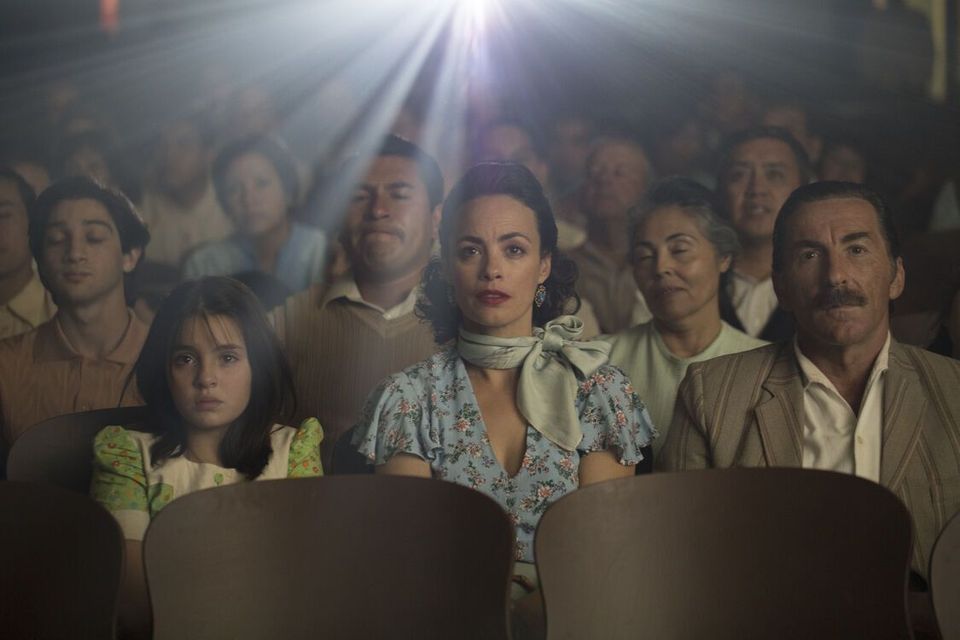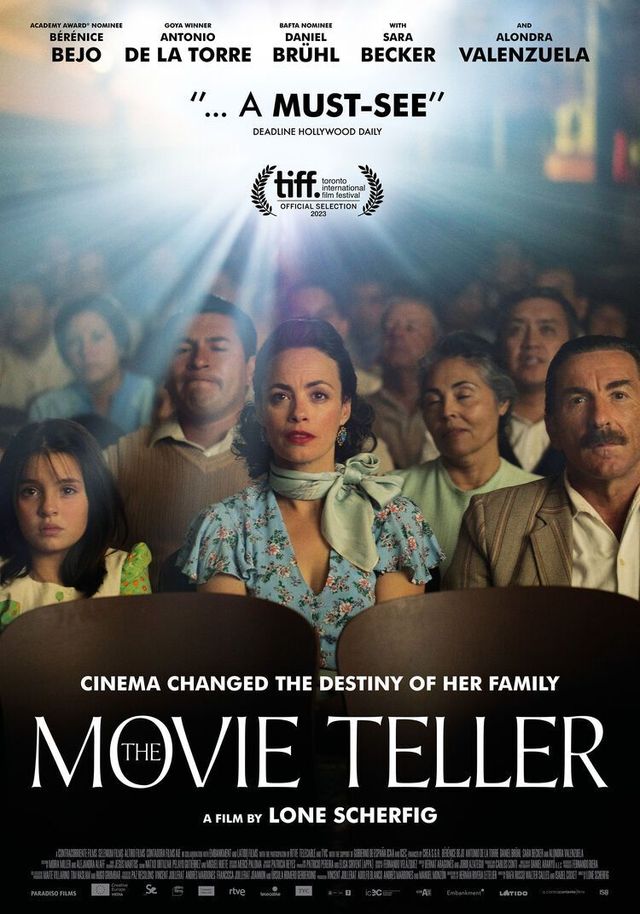The Movie Teller

Take a look in advance
For the salt mining community in Chile's Atamaca Desert, the local movie theater is their most sacred space. It is there, in the packed theater, that those who can afford a ticket gather every Sunday for a few hours of escapism. Through the films they watch, the community is transported to faraway places, where the days are not filled with endless forced labor in the salt mines, the people are not bothered by the slowly turning wheels of political unrest and are free to follow their dreams.
Of all the residents, María Margarita is most doo...
For the salt mining community in Chile's Atamaca Desert, the local movie theater is their most sacred space. It is there, in the packed theater, that those who can afford a ticket gather every Sunday for a few hours of escapism. Through the films they watch, the community is transported to faraway places, where the days are not filled with endless forced labor in the salt mines, the people are not bothered by the slowly turning wheels of political unrest and are free to follow their dreams.
Of all the residents, María Margarita is most transformed by it. Consequently, Sunday is her favorite day when she goes to the movies with her parents and brothers. When, after a setback, her family runs out of money for the weekly outing, María is allowed to keep going because she turns out to have a special talent; she can narrate the movies fantastically in detail afterwards. For María, movies become her second language - a language that only she is truly fluent in. She uses her storytelling talent to share the magic of the images she has seen in the cinema with the poor inhabitants of mining community in the Chilean desert. Soon the community is hanging on her every word.
The film explores María Margarita's life in two stages: first as the youngest daughter of a salt miner with a special talent, and later as a young woman whose hardships of life have made her the main breadwinner of her family. As hopes for a better, brighter future slowly begin to fade, the local cinema also finds itself in a downward spiral.
Director Lone Scherfig (best known for her Oscar-nominated drama An Education) shows the imperfect world in which María lives in every scene. Scherfig draws on the films María watches - never overtly, but subtly - to contextualize each new tragedy that comes into her life. The audience need not see the bloody aftermath of her father's injury; María's fear-filled eyes watching the gory film scenes can convey the same meaning.
In a sense, this tactic reflects María's role as a "film narrator.


